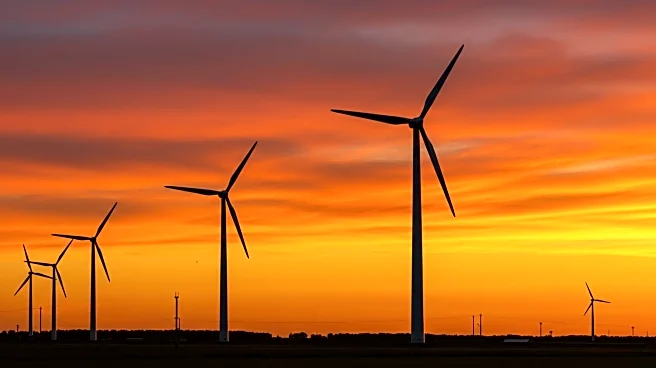What's Happening?
Europe is currently experiencing a severe heatwave, with temperatures reaching up to 44 degrees Celsius. This extreme weather is affecting various parts of the continent, including Nordic countries, which are facing unprecedented heat levels. The Mediterranean region is particularly impacted, with wildfires raging across the area. The heatwave is part of a broader trend of Europe heating faster than other regions, raising concerns about the continent's energy infrastructure and emergency services. Experts, including Ajit Niranjan, the Guardian's Europe environment correspondent, and Adam Taylor, a professor of anatomy at Lancaster University, are discussing ways to cope with the rising temperatures.
Why It's Important?
The heatwave in Europe has significant implications for energy infrastructure and public safety. As temperatures soar, the demand for energy, particularly for cooling systems, increases, putting additional strain on already stressed energy networks. The wildfires exacerbated by the heat further threaten energy infrastructure, leading to potential disruptions in supply. This situation highlights the urgent need for Europe to transition to renewable energy sources to mitigate reliance on fossil fuels and enhance resilience against climate-related disruptions. The heatwave also underscores the importance of adhering to EU climate targets to prevent further environmental degradation.
What's Next?
European countries are likely to accelerate their efforts to transition to renewable energy sources to reduce dependency on imported fossil fuels and improve energy security. Governments may implement more stringent policies to meet EU climate targets, focusing on sustainable energy solutions. Additionally, there may be increased investment in infrastructure to withstand extreme weather conditions, including heatwaves. Public awareness campaigns and emergency preparedness measures are expected to be prioritized to ensure safety during such events.
Beyond the Headlines
The heatwave in Europe raises ethical and cultural questions about climate change and environmental responsibility. It prompts a reevaluation of energy consumption habits and the need for sustainable living practices. The crisis may also influence cultural attitudes towards climate change, fostering a greater sense of urgency and collective action among European citizens. Long-term shifts in policy and societal behavior could emerge as a result of this environmental challenge.








